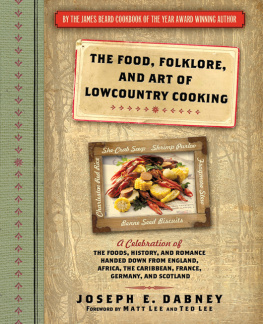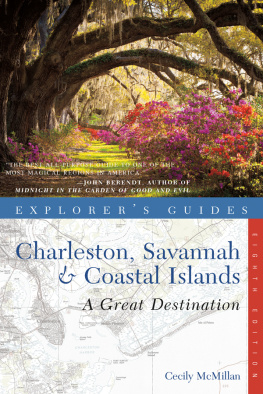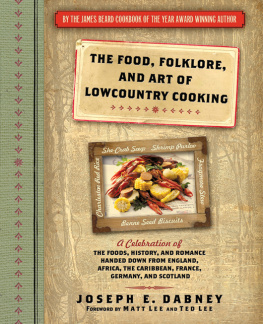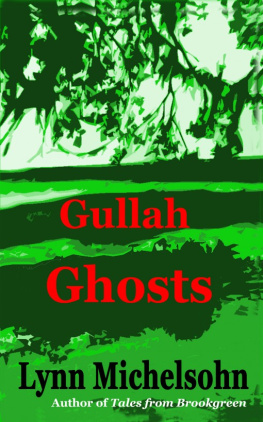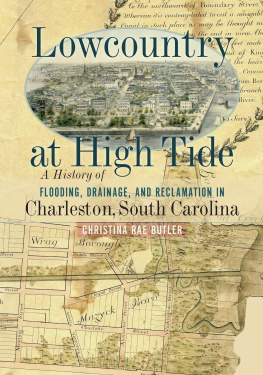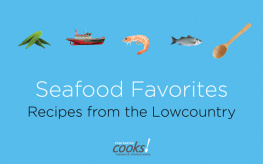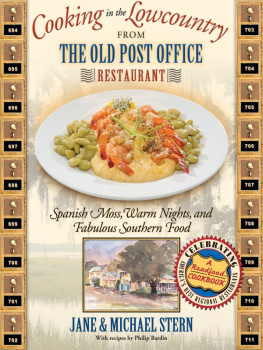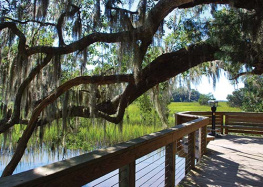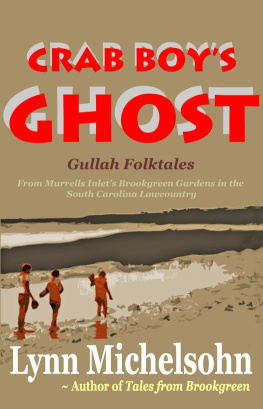
Copyright 2010 by Joseph E. Dabney
Cover and internal design 2010 by Sourcebooks, Inc.
Cover Design by Bruce Gore/Gore Studios, Inc.
Cover images Peter Frank Edwards Photographs; bphillips/istockphoto.com; milosluz/istockphoto.com; binabina/istockphoto.com; Dover Publications; Joe Dabney photo by Dayton Strickland, Cartersville, Georgia, Daily Tribune News
Sourcebooks and the colophon are registered trademarks of Sourcebooks, Inc.
All rights reserved. No part of this book may be reproduced in any form or by any electronic or mechanical means including information storage and retrieval systemsexcept in the case of brief quotations embodied in critical articles or reviewswithout permission in writing from its publisher, Sourcebooks, Inc.
All brand names and product names used in this book are trademarks, registered trademarks, or trade names of their respective holders. Sourcebooks, Inc., is not associated with any product or vendor in this book.
Published by Cumberland House, an imprint of Sourcebooks, Inc.
P.O. Box 4410, Naperville, Illinois 60567-4410
(630) 961-3900
Fax: (630) 961-2168
www.sourcebooks.com
Library of Congress Cataloging-in-Publication Data
Dabney, Joseph E.
The food, folklore, and art of lowcountry cooking : a celebration of the foods, history, and romance handed down from England, Africa, the Caribbean, France, Germany, and Scotland / Joseph Dabney.
p. cm.
Includes bibliographical references and index.
1. Cookery, AmericanSouthern style. 2. CookerySouth Carolina 3. CookerySouth CarolinaHistory. 4. South CarolinaSocial life and customs. I. Title.
TX715.2.S68D42 2010
641.5975dc22
2009039343
Printed and bound in the United States of America.
SB 10 9 8 7 6 5 4 3 2 1
This book is dedicated to Geneva, Earl, Mark, Scott, and Chris, who grew up eating their share of Susannes Chicken Purloo.
CONTENTS

Foreword

W e knew of Joe Dabney long before wed met the guy. Heck, every aspiring food historian knows Mountain Spirits, Dabneys groundbreaking, definitive book on moonshine and its culture, and his first gift to the library of culinary study. For that contribution alone, Dabney ranks among M. F. K. Fisher, Laurie Colwin, and Calvin Trillin in the food writers pantheon. But in his own way, Dabney is a far more brave and illuminating author. While it may take talent to write lyrically about what you do in your kitchen, or about how you hunt down the best barbecue or Peking duck joint, it takes an altogether different skill set to immerse oneself in a food and beverage community hell-bent on secrecy, with a predilection for firearms and volatile liquids, and to get folks to sit down and tell their stories. Reading Mountain Spirits, you get the sense that Dabney is truly as fearless as they come: who else would poke around the hollers, get up in moonshiners faces with pad and pencil, and then ask hard questions?
When we finally met Dabney at the Southern Foodways Symposium in 2000, we found he was an altogether different presence than the lion we had imaginedeasy to laugh, an adept storyteller with eyes that crackled with enthusiasm. It wasnt difficult to imagine him walking up an Appalachian dirt road, a tote bag slung over his shoulder, and charming his way into a kitchen conversation aboutand perhaps with a slice ofdried apple pie. Which is exactly what hed done for Smokehouse Ham, Spoon Bread & Scuppernong Wine: The Folklore and Art of Southern Appalachian Cooking. When we met Dabney, the book had just won the James Beard Foundation Cookbook of the Year award. So when we heard that Joe planned to bring his intellect, curiosity, and wit to the subject of Lowcountry cooking, we were thrilled beyond belief. Dabneys books are elbows-deep affairsyes theyre journeys in themselves, and yes theyre feasts, but those metaphors dont accurately portray the way a Joe Dabney book unfurls, his own travelogue threaded with the narratives he excavates from rare sourcebooks and with the voices of the people he meets. Joe Dabneys books get us fired up to travel, to cook, and to eat.
With his lowcountry cookbook, Dabney has done it again. Hes unearthed recipes we havent seen, and has us itching to get in the kitchen to develop new directions for fire-roasted conch, a stew called ribbles, rice-flour puddings, and persimmon beer. And were excited to explore the Dutch Fork and Saxe Gotha areas, German settlements in South Carolina that seem new to us, with baking and meat-curing traditions all their own. Dabneys talked to all the right peoplehere are Glenn Roberts, Nathalie Dupree, Damon Lee Fowler, Martha Nesbit, Sallie Ann Robinsonand close readers of Saveur and Food & Wine will smile and nod their heads. But Dabneys also found the sages locals try to keep to themselves, like Ben Moise, the former game warden and sometime Charleston caterer. This book is worth its cover price alone for the number of Moise family recipes Dabneys cajoled out of him! As always, Dabneys ear for the voices that best animate a place, that give it meaning, is keen. We meet the Rev. James E. Rich, who tells the story of a Brunswick Stew dinner his father made for a crew of convicts whod helped pave a road in Tattnall County, Georgia. And we have the testimony of long-time Murrells Inlet oyster-picker Franklin Smalls, whose passion for the marsh is as searing and indelible as poetry. We hear the stern voice of the father of Ervena Faulkner, a retired educator and food writer for the Beaufort Gazette, admonishing her, Everything cannot be wrapped up in a mealhow you treat people means more than what you chew. Its a statement that seems to speak directly to the marvel and the triumph of Dabneys book, which, after all, is an exploration of the meaning of what we chew. Dabneys attentive, uncommonly humane treatment of his subjects kindles their conversations and primes them to give generously of themselves and their traditions and stories. In doing so, Dabneys new book not only explains how people eat here; it says so much about the personality, language, and customs of this place. Quite simply, it portrays the Lowcountry way of life.
Matt Lee and Ted Lee winners of the 2007 James Beard Foundation Cookbook of the Year Charleston, South Carolina, October 2009
Acknowledgments

I t gives me great pleasure to express my heartfelt thanks to a host of wonderful individuals who gave me crucial help during the three years when I was researching and writing this book. Without their valuable assistance and guidance, I would have been unable to take on such a daunting task.
In contrast to my earlier cultural cookbook on the Southeastern hill country, in which I was writing about a region and a people with whom I was intimately familiar, this book deals with a territory, culture, and history about which my knowledge was somewhat limited. So I am deeply grateful to the many friends, old and new, who gave me a three-year education and a learning experience that I will never forget.
I would like to cite especially the marvelous and unfailing support from Washington resident and supreme Lowcountry historian and author John Martin Hoppin John Taylor. In the earliest days of my research, John Martin suggested that I get in touch with Charlestonian Ben McCutchen Moise. That proved providential. Moise (pronounce that mo-ease), a retired state game warden who resides in historic Charleston with his wife, Anne, and who owns his own island in the Charleston area, graciously shared with me his encyclopedic knowledge of all facets of Lowcountry culture and foodways. Bens quick response to each and every email question, however seemingly insignificant, was essential to my work.
Next page
